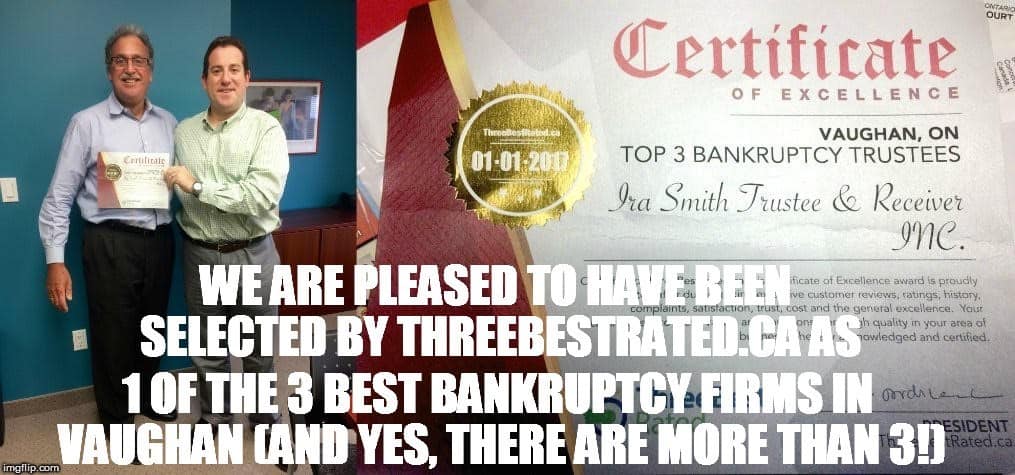Gail Vaz Oxlade Budget: Introduction
In July 2016, Gail Vaz-Oxlade announced her retirement, concluding a significant period of dispensing personalized financial counsel to Canadians. She was known as Canada’s no-nonsense money expert. She dispensed advice through both print and as the presenter of well-received television series such as Gail Vaz-Oxlade’s Til Debt Do Us Part, Princess, and Money Moron. She was well known for her Gail Vaz Oxlade budget process, helping Canadians to live within their means.
In this Brandon’s Blog, I want to discuss what could be a real Gaild Vaz Oxlade budget case to show how her techniques can be used to help people reduce debt and live a financially stress-free life. Read the inspiring story of Mick and Bonnie as they overcome financial challenges to improve both their financial life and their future.
Gail Vaz Oxlade Budget: Assessing Your Personal Financial Situation
The sustaining problem people have with managing their funds usually manifests as an overwhelming weight upon them, negatively affecting their holistic well-being and life’s essence. Mick and Bonnie encapsulate this situation. Their ongoing grappling with significant financial hurdles bolsters a ruthless cycle of distress and exasperation, building an unrelenting life filled with concern and discontent.
Understanding Your Expenses: The Impact of Impulse Shopping and Lack of Financial Planning
Among the major contributing factors to Mick and Bonnie’s financial battles is their propensity toward impulse buying. They frequently find themselves making unplanned purchases without taking into consideration the long-term effects. This spontaneous habit not only diminishes their available funds but also prevents them from allocating cash in the direction of more necessary costs, such as necessary living expenses and financial savings.
Moreover, the couple’s absence of economic preparation aggravates their problems. Without a solid process like the Gail Vaz Oxlade budget steps, Mick and Bonnie struggle to prioritize their expenses effectively. They find it challenging to separate desires from needs, which eventually brings about overspending and a constant state of monetary pressure.
The Burden of Debt and Unpaid Taxes
As if impulse shopping and bad financial planning were not enough, Mick and Bonnie likewise need to manage the concern of other debt and unsettled taxes. With time, they have built up a significant amount of financial obligations from credit cards, loans, and various other borrowings to fund their lifestyle.
Regrettably, their lack of ability to manage their financial debt effectively just worsens their economic situation. High rates of interest, late fees, and collection calls just add to their anxiety and stress. The constant stress of satisfying these economic commitments leaves them feeling overwhelmed and caught in an endless cycle of financial debt.
In addition to these mounting financial obligations, Mick and Bonnie also have unsettled tax obligations weighing heavily on them. The failure to meet their tax liabilities has led to fines and built-up interest, exacerbating their economic troubles. They currently not only have to contend with their existing debt but also deal with the possibility of legal effects if they do not address their tax issues without delay. They need a household budget as a first step towards financial rehabilitation.
Navigating Towards Financial Stability
Despite their present financial battles, Mick and Bonnie have a twinkle of hope. Identifying the need for modification, they have begun taking action toward monetary stability. They are dedicated to getting out of the cycle of impulse purchasing and have started carrying out a Gail Vax Oxlade budget system that permits better monetary planning and decision-making.
Furthermore, they are seeking expert help to handle their debt effectively. By working with financial advisors or non-profit community organization-based credit counsellors, they hope to develop a sensible payment plan and negotiate much better terms with their lenders.
Resolving their tax obligation problems is also a leading priority. Mick and Bonnie are actively engaging with tax specialists to understand their tax problems and check out choices not only for resolving their tax obligation financial debt but also how to stop falling further behind. They agree to remedy their blunders and work towards a clean financial slate.
While the journey towards monetary security may be tough, Mick and Bonnie figured out how to conquer their present battles. By incorporating much better financial routines, looking for specialist support, and taking responsibility for their actions, they are now starting down the long road of working towards a brighter financial future.

Gail Vaz Oxlade Budget: Setting Up Your Initial Budget
To manage your money properly, sometimes having professional help to get you started is a smart thing to do if you are unsure of the process. Mick and Bonnie believed that was their situation. They reached out to a professional to teach them the Gail Vaz Oxlade budget process. This was a major step for them in their journey to achieve financial literacy and wellness.
Consulting a Financial Expert
Mick alongside Bonnie comprehended the persistent challenge they had faced concerning their monetary matters over a prolonged period. Living consistently from paycheque to paycheque, they found themselves incapable of accumulating savings or delving into potential investments for what lay ahead. It dawned on them that seeking out an individual capable of offering astute counsel and aiding in steering toward more judicious financial choices was imperative.
Following an extensive exploration and the solicitation of suggestions, Mick and Bonnie stumbled upon a respected financial maestro with a proven history of aiding both individuals and households in enhancing their financial stability. Arranging a get-together, they readied themselves to articulate the financial hurdles they encountered and the lofty ambitions they harboured.
Challenges and Reflection
In the course of their interaction with the financial expert, Mick and Bonnie encountered an array of hurdles designed to enhance their financial landscape. These hurdles aimed to pinpoint zones where their expenditures were out of whack, exceeding anything close to normal or for sure not what they could afford. The purpose was to trim away superfluous costs and to craft a pragmatic Gail Vaz Oxlade budget.
At first, these hurdles appeared formidable to Mick and Bonnie. It dawned on them that a shift in their perspective and strategy toward finances was imperative. It marked a juncture of gut-wrenching yet necessary introspection as they came to terms with their prior financial errors and pledged themselves to instigate constructive alterations moving forward.
Creating a Budget and Cutting Down on Spending
Under expert guidance, Mick and Bonnie commenced the intricate process of formulating an all-encompassing budget. Amassing all their financial records, they meticulously scrutinized their earnings, outlays, and outstanding debts, concocting a strategic scheme to judiciously apportion their funds.
Cognizant of the significance of stashing away funds, Mick and Bonnie pinpointed sectors ripe for trimming unnecessary expenditures. Termination of scarcely utilized subscriptions, curbing dining outs, and adopting a more mindful approach to grocery shopping ensued. Simultaneously, they embarked on measures to curtail utility bills and delved into avenues exploring debt refinancing for favourable interest rates.
The creation of a monthly personal budget approach morphed into an ongoing commitment for Mick and Bonnie. They grasped its necessity for sustained dedication and self-restraint. Thus, they initiated a routine of diligently monitoring their expenses, periodically revisiting their Gail Vaz Oxlade budget blueprint, and effecting alterations whenever necessary.
The Benefits of Seeking Professional Help
The fruits of their pursuit of professional assistance swiftly began to manifest for Mick and Bonnie. With a structured budget in tow, a newfound sense of command over their financial affairs emerged. Prioritizing financial objectives and deliberate fiscal choices became their forte.
Furthermore, their enhanced fiscal status bestowed upon them the capacity to accumulate savings and delve into investments earmarked for what lay ahead. Initiating emergency fund accounts to cover unexpected expenses, channelling contributions toward retirement accounts, and exploring avenues for wealth augmentation became their modus operandi. Alongside, a tranquillity settled in, diminishing the weight of financial strain in their daily lives.
The trajectory of Mick and Bonnie’s financial expedition underwent a profound transformation through their engagement with professional aid. It not only furnished them with vital guidance but also bestowed upon them the autonomy to steer their fiscal trajectory. Valuable insights were gleaned on the intricacies of budgetary prudence, the art of saving, and the significance of well-informed financial deliberations.
By seeking counsel from a financial expert, Mick and Bonnie unlocked a trove of wisdom and proficiency. They triumphed over their fiscal obstacles, laying the groundwork for a more promising fiscal future. The decision to seek professional guidance undoubtedly stands as one of their most astute choices to date.

Gail Vaz Oxlade Budget: Implementing Your Budget Plan
Life demands more than mere good intentions; you need to show up. It necessitates the fortitude to act upon and see through our aspirations. This rings particularly true in the realm of finances, where executing transformative changes paves the way for a brighter tomorrow. Now that they got the Gail Vaz Oxlade budget under their belt, it pointed out other areas that needed fixing to truly transform their lives.
Mick: Filing Delinquent Taxes and Automating Payments and Setting Aside Funds For Emergencies
Mick, by nature, tended toward procrastination, particularly to more stress-inducing things, such as filing income tax returns. Year after year, he avoided filing until the eleventh hour, occasionally missing deadlines, leading to a mounting heap of unpaid taxes and accompanying fines. However, a turning point arrived when Mick resolved to break this pattern. Armed with all requisite documents, he finally resolved to address his overdue taxes.
Yet, Mick’s resolve extended beyond rectifying past tax discrepancies. He pledged to initiate a regimen of regular savings. Instituting automated transfers from his chequing account to automatic savings accounts, each with a specific purpose. He meticulously crafted a budget, ensuring his expenditures aligned harmoniously with his actual income. Mick grasped the significance of proactive measures and fiscal responsibility in fortifying his financial stability.
Bonnie: Earning Extra Income through Piano Lessons
Bonnie was a very experienced pianist. At one point she seriously considered becoming a professional musician. However, the restrictions enforced by her full-time work and myriad of other duties got in her way. After completing their Gail Vaz Oxlade budget two things jumped out to Bonnie. The first was that she and Mick not only needed to cut down on expenses, but they also needed to find a way to increase their income. The second realization that hit her was that she had the skills already to earn extra money by giving piano lessons. Therefore, she started giving piano lessons in her spare time.
Through this positive action, Bonnie not only earned the extra income she needed, but she also felt closer to really being a professional musician. The extra money helped them pay down debt and she found new meaning to her life at the same time.
Finding Joy without Excessive Spending
Often, we connect enjoyment and pleasure with big spending. However, it’s possible to have a fun time without breaking the bank. Mick and Bonnie discovered this beneficial lesson when they became parents. They realized that investing top-quality time with their children was more crucial than material belongings or pricey entertainment.
Mick and Bonnie discovered pleasure in inexpensive activities. They went for family hikes, outings and picnics in the park, and played games at home. These not only enhanced their bonds as family members but also taught their children beneficial lessons regarding gratitude and the true significance of happiness.
By taking action and redefining what brings them pleasure, Mick and Bonnie were able to save money and create enduring memories with their kids. They acknowledged that it’s not the cost that matters however the quality of the experience and the time invested with each other.
Finally, taking action is vital for achieving our objectives and making positive changes in our lives. Mick’s story shows us the significance of resolving financial obligations, while Bonnie’s tale shows us the worth of using our skills and interests to create added income. Last but not least, Mick and Bonnie remind us that joy can be located in things that do not require extreme spending to have a satisfying life.
Gail Vaz Oxlade Budget: Overcoming Challenges and Strengthening the Relationship
In the face of adversity, the remarkable love of Mick and Bonnie burgeoned into an extraordinary tale. Their resolute determination to overcome their financial hardships using the Gail Vaz Oxlade budget process stood as a testament to their unbreakable bond—a bond unfazed by tribulations.
Mick’s steadfast dedication to bolstering Bonnie’s musical aspirations, even at the expense of their leisure time together, proved profoundly inspiring. Bonnie, inundated with appreciation, revered his steadfast faith in her dreams and his readiness to go to considerable lengths to fulfill their financial ambitions. Together, they sought solace in their shared odyssey, morphing hindrances into pivotal milestones.
Their mutual affection deepened while navigating tumultuous seas, fearlessly engaging in candid dialogues about their profound anxieties. United, they confronted every ostensibly insurmountable challenge head-on, emerging triumphant in due course.

Gail Vaz Oxlade Budget: Conclusion
I hope you enjoyed this Gail Vaz Oxlade budget Brandon’s Blog post. If you’re struggling with managing your overwhelming debt in this high-interest environment, don’t worry – there are some things you can do to take control of the situation.
First, it’s important to create a realistic budget spreadsheet and track your expenses. From there, you can prioritize your debt repayment plan and make consistent payments to chip away at what you owe. It’s also a good idea to seek professional financial advice to help guide you through the process. Just remember, managing debt is a gradual process that requires commitment and determination, but you can do it! So don’t hesitate to reach out for help from financial professionals.
Individuals and business owners must take proactive measures to address financial difficulties and promptly seek assistance when necessary. It is crucial to recognize that financial stress is a prevalent concern and seeking help is a demonstration of fortitude, rather than vulnerability. Should you encounter challenges in managing your personal finances and find yourself burdened by stress, do not delay in pursuing aid.
Revenue and cash flow shortages are critical issues facing people, entrepreneurs and their companies and businesses with debt problems that are in financial distress. Are you now worried about just how you or your business are going to survive? Are you worried about what your fiduciary obligations are and not sure if the decisions you are about to make are the correct ones to avoid personal liability? Those concerns are obviously on your mind.
The Ira Smith Team understands these financial health concerns. More significantly, we know the requirements of the business owner or the individual who has way too much financial debt. You are trying to manage these difficult financial problems and you are understandably anxious.
It is not your fault you can’t fix this problem on your own and it does not mean that you are a bad person. The pandemic has thrown everyone a curveball. We have not been trained to deal with this. You have only been taught the old ways. The old ways do not work anymore. The Ira Smith Team uses innovative and cutting-edge methodologies, to adeptly navigate you through the intricacies of your financial challenges, ensuring a resolution to your debt-related predicaments without resorting to the rigours of the bankruptcy process. We can get you debt relief now!
We have helped many entrepreneurs and their insolvent companies who thought that consulting with a Trustee and receiver meant their company would go bankrupt. On the contrary. We helped turn their companies around through financial restructuring.
We look at your whole circumstance and design a strategy that is as distinct as you are. We take the load off of your shoulders as part of the debt settlement strategy we will draft just for you.
The Ira Smith Trustee & Receiver Inc. team understands that people facing money problems require a lifeline. That is why we can establish a restructuring procedure for you and end the discomfort you feel.
Call us now for a no-cost consultation. We will listen to the unique issues facing you and provide you with practical and actionable ideas you can implement right away to end the pain points in your life, Starting Over, Starting Now.












